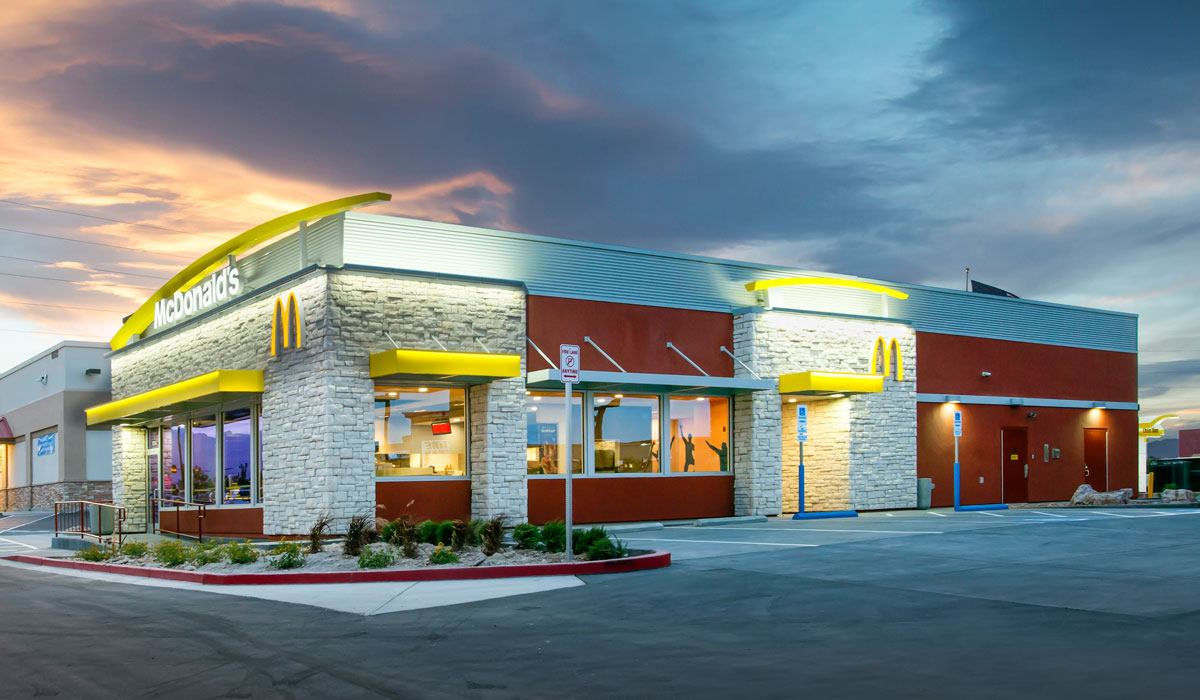There’s been a glaring spotlight on the relationship between McDonald’s and its franchisees in recent weeks. Restaurant analyst Mark Kalinowski published a poll commissioned by the franchise advocacy group National Leadership Council that asked 1,145 McDonald’s operators to chime in. Top of mind were cash-flow issues, remodel burdens, an influx of cost-heavy initiatives, lack of promotional flexibility, and the complexity tied to the chain’s $1 $2 $3 Dollar Menu. One of McDonald’s biggest responses was the November announcement it would slow its wide-ranging Experience of the Future redesign program to give franchisees more time to update. McDonald’s previously said it planned to complete more than 12,000 restaurants by the end of 2019 and have most of its 14,000-plus U.S. locations complete by 2020. Now, operators now have until 2022 to refresh stores, although that changes the financial equation.
READ MORE: McDonald’s plans to launch Donut Sticks.
Ad Age brought another issue to light in a January 10 article. This one concerns the company’s media agency, OMD. The Omnicom Group won an account handling media buying for local co-operative groups of McDonald’s operators in 2017. It also handles the company’s buying at a national level.
Ad Age discovered that McDonald’s is in the midst of reviewing its local U.S. media business. What this entails is that, following the review, McDonald’s will allow local co-ops to choose from a variety of media agencies to work with. This aligns with some of the other one-size-fits-all issues franchisees have brought up. What works from a broad, company-run perspective isn’t always resulting in the best returns for the 14,000-plus U.S. operators at the store level, they’ve said.
During McDonald’s last earnings call, it noted—in an effort to regain breakfast share—that it was shifting some of its spend to regional and letting local co-ops choose which items and what deals are best suited for their markets.
These issues have been at the heart of many arguments from the newly created National Owners Association, which sprung up last year from a group of McDonald’s operators. More than anything, the franchisees have asked for flexibility to improve their bottom lines and make day-to-day operations run smoother.
Ad Age notes that the change also follows “some disappointment about the fast feeder’s marketing strategy.” In the same vein as the breakfast share redirect, McDonald’s was accused at times last year of placing too much emphasis on national campaigns over local ones. This article from Ad Age dives deeper. From a broad view, McDonald’s could have benefited, in some operator’s eyes, from catering to regional markets instead of national audiences. Deals on drinks, items, and so forth, should have been dictated by sales by area, not by corporate initiatives, operators said.
Ad Age said it wasn’t immediately clear how many agencies were part of the new review. OMD and Publicis Groupe’s Starcom were both involved, Ad Age added.
McDonald’s sent a statement to the publication, saying, “We continue to work closely with our franchisees and this effort is simply about offering additional local media buying flexibility to them so they may support their business and connect with customers as they see best.”
Before OMD won the local media buying work, regional co-ops hired their own media agencies, Ad Age said. That shifted when McDonald’s dropped the number of co-ops and agencies approved to work with them in 2017.
Ad Age said the competing agencies would likely seek approval by corporate and then pitch locally to win the co-op accounts. No changes were made to the national U.S. account run by OMD.
In October 2017, McDonald’s conducted a global media review in hopes of landing multiple agency partners. OMD and Starcom were awarded media accounts for other countries as part of that process, Ad Age said, with OMD holding on to Canada, China, Germany, the Baltics, the U.K., Egypt, and half of Latin America. Starcom won France and the other half of Latin America.
McDonald’s, according to the Ad Age Datacenter, was the nation’s 29th largest advertiser in 2017, spending 3.4 percent higher than the year before to nearly $1.51 billion. Of that, about 80 percent went to TV ads.
McDonald’s posted global same-store sales of 4.2 percent, year-over-year, in the third quarter, marking 13 consecutive quarters of positive global gains. U.S. comps increased 2.4 percent, international lifted 5.4 percent, and “high growth” international markets saw a 4.6 percent boost.







